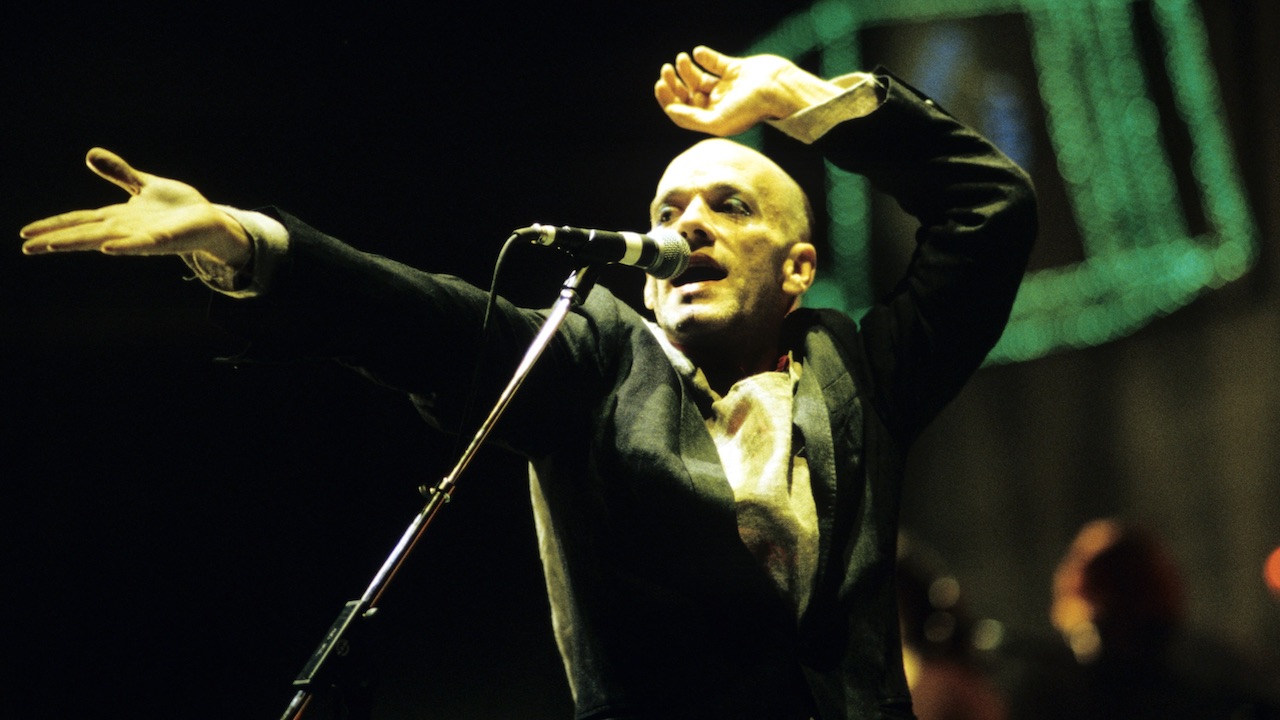
R.E.M. were in full-on studio mode by the time they came to make their 1992 classic Automatic For The People. A gargantuan world tour to support 1988’s Green had worn the Athens, Georgia band out and put them off the idea of embarking upon a similar arduous trek for 1991’s Out Of Time. Instead, they went straight back into the studio to begin working on its follow-up, with demos for three key tracks – Drive, Try Not To Breathe and Nightswimming – already laid down during the mixing sessions for Out Of Time. Those three songs, by turns folksy, dark and stripped-down, set a template for the band’s eighth record. Automatic For The People would be their least upbeat album, but also their most uplifting.
No song summed that up more than Everybody Hurts, a perfect meld of gently-picked arpgeggios, swooping strings and yearning vocals that would become a hit to match Out Of Time’s Losing My Religion. For those who’d followed the band through the '80s, trying their best to decipher Michael Stipe’s wibbly-wobbly mumbling on the group’s early records, to hear the frontman so direct on Everybody Hurts was a shock. Indeed, in an interview with Select magazine’s David Cavanagh in 1992, guitarist Peter Buck revealed that the band were surprised themselves.
“Usually his stuff you can read on a couple of different layers,” said Buck. “In that one there’s one layer. What it is is what it is. And that’s good. You don’t want to think you’re so clever you can’t just directly say something.”
The guitarist revealed that, despite the fact the band hadn’t even toured Out Of Time, there was a line in it that directly influenced Everybody Hurts and how the audience might perceive it.
“There was one line after the first chorus where he originally sang: 'Everybody hurts, even the singer of this song',” Buck divulged. “And he went – ‘Y’know, let’s be more universal’. Because he regrets ‘That’s me in the spotlight’ on Losing My Religion, cos then people translate it as some guy onstage, which is not what the song is about at all.”
Would that original line have made Everybody Hurts less affecting? Probably not. Stipe’s delivery in the song is so poignant he probably could’ve got away with reading out his shopping list in the second verse, but it’s insightful to hear how a frontman who wasn’t always comfortable being in the limelight was determined to make Everybody Hurts connect on the biggest scale possible.
R.E.M. bowed out of the music business in September 2011, issuing a statement which read: "As R.E.M., and as lifelong friends and co-conspirators, we have decided to call it a day as a band. We walk away with a great sense of gratitude, of finality, and of astonishment at all we have accomplished. To anyone who ever felt touched by our music, our deepest thanks for listening."
Speaking to Classic Rock last year, Peter Buck admitted that the phenomenal success the quartet enjoyed in the 1990s "took away some of the pleasure" of being in the band.
"When the non-musical stuff became so intense, it took away some of the pleasure for me," he told writer Rob Hughes. "It’s just the stuff where you kind of wake up and go: 'God, I don’t really want to have my picture taken today. And I don’t really want to pretend to be an actor in some video where I can’t act.'
"I loved playing Glastonbury and playing in front of lots of people and selling multiple millions of records," Buck continued, "but it was never the reason I did it. And when we got to the point where we decided that it was the end, it felt like a great shared experience. I wouldn’t change it, but I’m not gonna go back to it."







